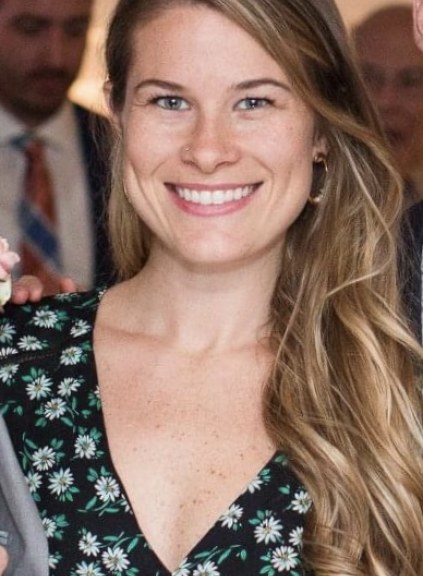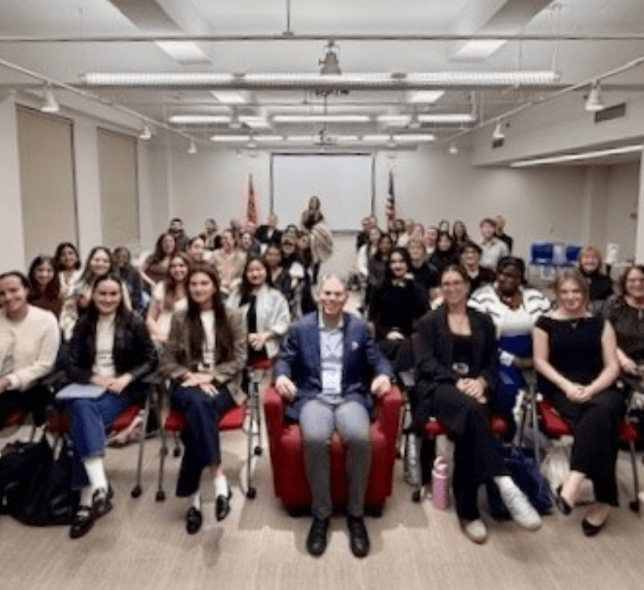Katina Boutis is the Director of Sustainability at Everlane. With an extensive background in environmental science and sustainability, Katina began teaching Sustainability and the Future of Fashion just as it was becoming a required course for LIM’s Fashion Merchandising major.
Please tell us a little about your professional background and your role at Everlane.
I started my career in the nonprofit and academia sectors, focused on research and implementation, eventually pursuing a master’s in Sustainability Management. During and after my master’s program, I wanted to connect my scientific background with my drive for social impact in an applied way. Specifically, I wanted to find my way into the consumer products industry to influence positive change. I found my niche in the growing sustainability movement in fashion.
Now, as Director of Sustainability at Everlane, I build the strategy for our social responsibility and environmental impact initiatives across all supply chain and company operations. I am also responsible for expanding our approach to transparency and disclosure.
How do you bring your experiences into the classroom?
The field of sustainability is constantly evolving with scientific research, policy changes, and industry best practices. It’s also complex and can feel theoretical. Connecting a problem as large as climate change to the day-to-day decisions of a brand—or a merchandiser, product developer, etc.—can be tough!
I try to bring my daily work, particularly how I engage with cross functional partners, into the classroom. I build case studies and current events into the curriculum to bridge the gaps between these broad topics and the real, relevant ways we can solve them.
Why is it especially important to implement sustainable practices in fashion?
Implementing practices of sustainability—where social, environmental, and financial considerations carry equal weight—is imperative across all industries. But I see tremendous opportunity for fashion to make meaningful change. The cultural and creative power this industry wields is almost unmatched. If we can figure out how to create a more equitable and clean future for the fashion industry, it’s only a matter of time before others follow.
What are your thoughts on the Sustainability minor LIM recently launched?
I think it’s great for a lot of reasons! Obviously, I love the opportunity for students to dive deeper into sustainability; but, I also think it’s a smart competitive decision for LIM as this subject becomes more ubiquitous and as consumers gain awareness and influence policy changes.
I’ve been so impressed by the students’ genuine interest in this subject and their willingness to think critically about systemic problems and solutions. They’re coming in with knowledge of the issues in the industry and an authentic drive to change it for the better.
What do internship and career paths look like for students interested in sustainability?
This is a growing field across the consumer products industries, from fashion and footwear to cosmetics and home goods. Companies of all sizes need fresh talent, new ideas, and brain power if we’re going to collectively solve the crises we face.
That said, I like to remind my students that not everyone can be the Sustainability Director at a company—and that’s okay! You can still be part of the solution by doing what you do best and bringing your drive for a more equitable and sustainable industry to your everyday work.



